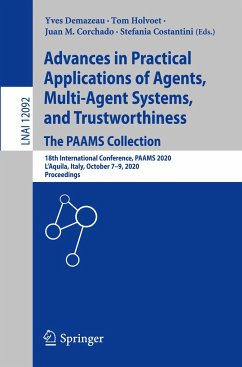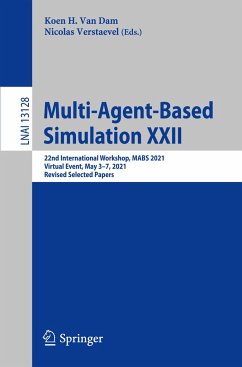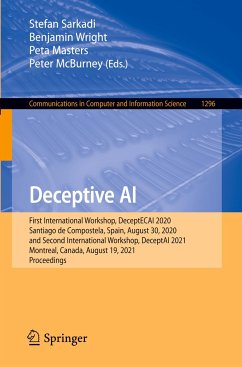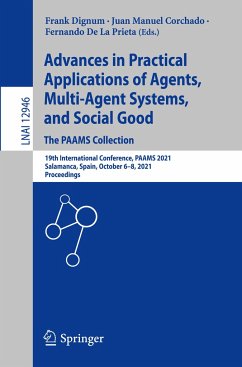
PRIMA 2020: Principles and Practice of Multi-Agent Systems
23rd International Conference, Nagoya, Japan, November 18-20, 2020, Proceedings
Herausgegeben: Uchiya, Takahiro; Bai, Quan; Marsá Maestre, Iván

PAYBACK Punkte
19 °P sammeln!
This book constitutes the refereed proceedings of the 23rd International Conference on Principles and Practice of Multi-Agent Systems, PRIMA 2020, held in Nagoya, Japan, in November 2020. The 19 full papers presented and 13 short papers were carefully reviewed and selected from 50 submissions.
Due to COVID-19, the conference was held online.
The conference covers a wide range of ranging from foundations of agent theory and engineering aspects of agent systems, to emerging interdisciplinary areas of agent-based research.
Due to COVID-19, the conference was held online.
The conference covers a wide range of ranging from foundations of agent theory and engineering aspects of agent systems, to emerging interdisciplinary areas of agent-based research.














